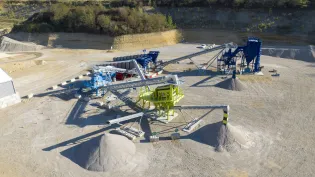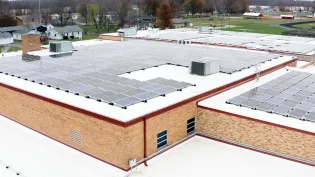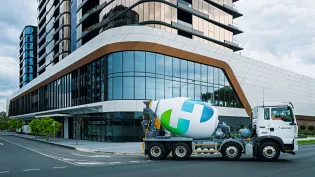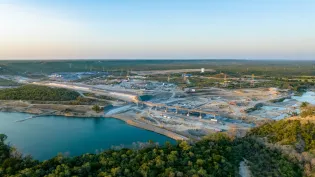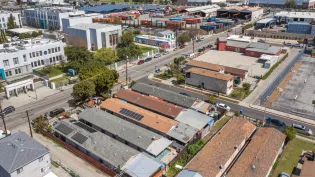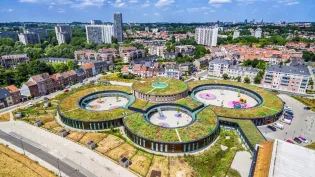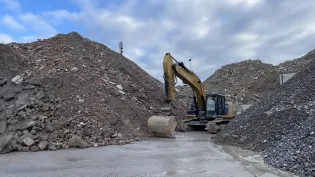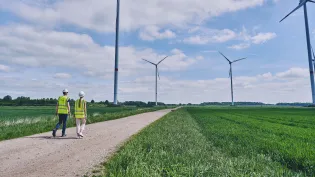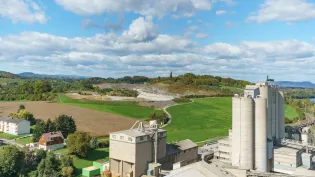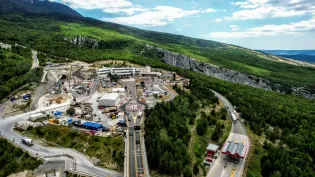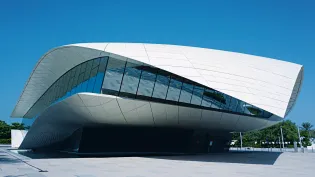net-zero ENABLERS
At Holcim, we are helping tackle today’s climate challenges and accelerate green demand. We have identified the actions we can take across our value chain to grow the demand for net-zero solutions.
How we're enabling net zero
Given the scale of today’s climate challenges, no single organization can tackle it alone. The realization of net-zero economies will require unprecedented collaboration:
- Between industry and policy makers in order to facilitate the development of the business case that is necessary to guarantee short and long-term investments as well as developing market demand for low-carbon and circular products across the construction sector to fully integrate climate and circularity performance
- Across the construction value chain (from architects to project owners)
- With our people and communities through a proactive stakeholder engagement that focuses on awareness, dialogue and collaboration and is designed to create shared value
With this in mind, Holcim collaborates proactively and transparently with a broad range of stakeholders to create an enabling framework based on four core pillars:
Competitive carbon pricing
Holcim supports the use of carbon pricing mechanisms to facilitate the development of a realistic business case for the deployment of carbon-efficient technologies.
For example, we favor a level playing field on carbon costs between domestic producers and importers (that may not be subject to a carbon price), as well as mechanisms to reduce carbon price volatility.
Carbon cost should also be absorbed into products and solutions to render low-carbon solutions more competitive.
- Contributing to the development of competitive regulatory frameworks on carbon pricing in collaboration with relevant governments and stakeholders
- Collaborating with international initiatives and coalitions that are driving the international carbon pricing agenda, such as the Leadership Group for Industry Transition and the Carbon Pricing Leadership Coalition
Creating market demand for low-carbon and circular solutions
Holcim is developing cutting-edge products and solutions to accelerate the transition towards decarbonized and circular buildings from our ECOPact concrete range to our roofing and insulation solutions.
Regulatory environments and building standards that incentivize market uptake of low-carbon and circular products are needed to further these efforts.
We are at the forefront of decarbonizing building across its entire lifecycle to build a net-zero future that works for people and the planet.
- Contributing to the development of regulatory and standardization frameworks based on material neutrality and full lifecycle performance
- Participating in international coalitions and initiatives such as the Global Alliance for Buildings and Construction, the Concrete Sustainability Council, and the chair of Sustainable Construction at ETH Zurich
Enabling the deployment of next-generation technologies such as Carbon capture, use and storage (CCUS)
The large-scale deployment of CCUS technologies forms a core element of our net-zero transition.
Besides technology challenges, it also forms economy-wide endeavor. It requires a strong regulatory framework for the transport, use and storage of captured CO2, significant investment in the development of CO2 transportation and storage networks, and social acceptance for permanent carbon storage technologies.
- Participating in more than 50 CCUS pilot projects in Europe and North America to develop solutions applicable to different circumstances
- Evaluating pilot projects based on cost, technical feasibility, compatibility with CO2 usage opportunities, and regulatory framework, with the aim to reach a total CO2 capture capacity of more than 5 million tons per year by 2030
- Contributing to the development of innovation and incentivizing regulatory framework, ranging from GHG methodologies to CO2 transport frameworks
Ensuring access to competitive decarbonized energy
The low-carbon transition will necessitate abundant and competitively priced renewable energy products to meet the growing energy needs of industry.
Regulatory frameworks must incentivize the use of fossil fuel alternatives such as non-recyclable and biomass waste-derived fuels.
- Collaboration with various government jurisdictions to accelerate the defossilization of our operations, including by increasing the use of alternative fuels such as non-recyclable waste-derived fuels (also known as co-processing) and developing large-scale renewable energy projects
- Collaborating with partners across our value chain to develop energy efficient solutions for buildings, such as thermal concrete activation enabling fossil-free heating & cooling in buildings
- Developing recognized best practices regarding waste co-processing solutions in partnership with international organizations: GIZ (Germany), ADEME (France), SINTEF (Norway), Central Pollution Control Board (India), and the UN Environment Programme







